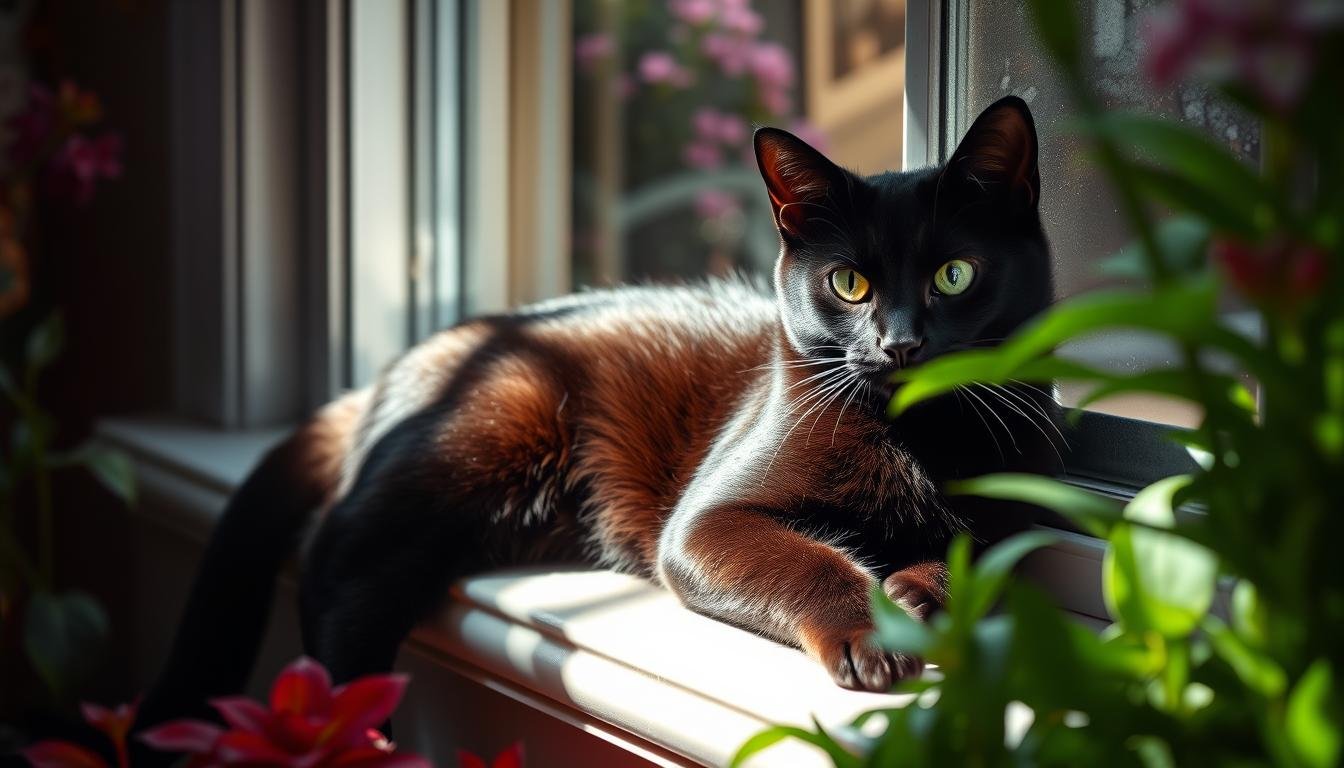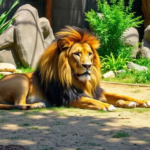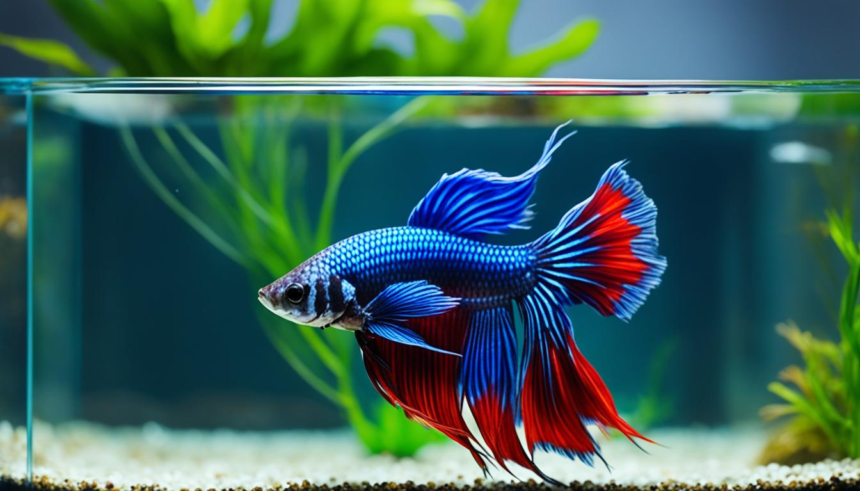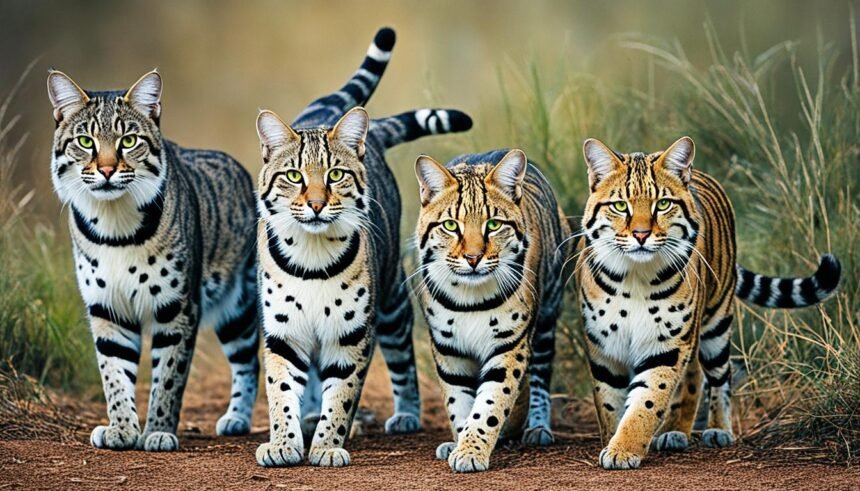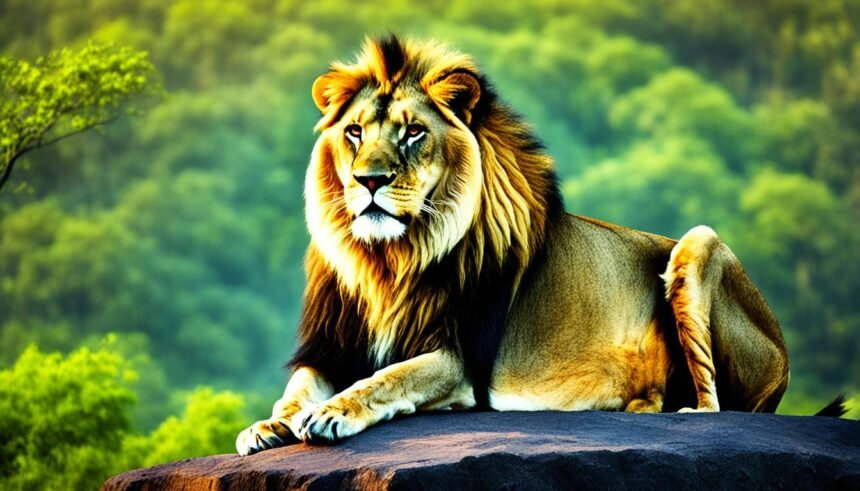Black cats have been surrounded by myths and misconceptions for a long time. People often think they bring bad luck or have mysterious personalities. But, the truth about black cats is much more interesting than these legends.
In this article, we will look into the myths and facts about black cats. We’ll explore their historical significance, unique personality traits, and the science behind their color.
Key Takeaways
- Black cats have long been associated with superstitions and myths, but these beliefs are often unfounded.
- Black cats have unique personality traits, including an affectionate nature, high intelligence, and a playful temperament.
- The color of a cat’s fur is determined by genetics and can provide health benefits, such as resistance to certain skin conditions.
- Common misconceptions about black cat behavior, such as their tendency to be aggressive or unlucky, are not supported by scientific evidence.
- Black cats are often overlooked in shelters, but they can make wonderful companions with the right care and socialization.
The Historical Significance of Black Cats in Different Cultures
Black cats have fascinated people for centuries. They are part of many cultures, seen as both lucky and unlucky. This shows how different views have shaped our understanding of these animals.
Ancient Egyptian Reverence for Black Cats
In ancient Egypt, black cats were sacred. They were linked to the goddess Bastet, who protected homes and brought luck. People mourned when these cats died. They even mummified them, showing how much they were respected.
Medieval European Superstitions
In medieval Europe, black cats got a bad reputation. They were linked to witchcraft and bad luck. People believed they were witches’ friends, leading to persecution. This fear still exists in some places today.
Asian Cultural Perspectives
In Asia, black cats have a different image. In Japan, the Maneki-neko cat is lucky for its owner. In China, black cats are seen as auspicious, balancing the yin and yang.
Black cats have had a big impact on cultures. From ancient Egypt’s respect to medieval Europe’s fear and Asian beliefs, they’ve shaped our views. Their journey through history shows their lasting influence on our imagination.
“The black cat is a symbol of both good and bad luck, a reflection of the complex and often contradictory ways in which humans have perceived these enigmatic creatures throughout history.”
Understanding Black Cat Personality Traits and Temperament
Black cats are known for their unique personalities and captivating temperaments. They are affectionate, intelligent, and playful. Exploring black cat personality traits offers insights into these amazing animals.
Black cats are famous for their love and loyalty. They bond strongly with their human families, seeking cuddles and quality time. This makes them beloved pets in many homes.
Black cats are also known for their problem-solving skills and quick intelligence. They love to explore and learn, showing a keen curiosity. Their intelligence helps them solve complex problems in creative ways.
Another great thing about black cats is their playful nature. They enjoy energetic play, chasing toys, and playing with their humans. Their lively spirit brings joy and entertainment to their surroundings.
“Black cats are the epitome of unique and intriguing personalities. Their affection, intelligence, and playfulness make them truly remarkable feline companions.”
Black cats have a rich mix of personality traits that make them stand out. Their loyalty, intelligence, and playful nature captivate and delight their families.
The Science Behind Black Fur: Genetics and Evolution
Black fur on cats has always caught the eye of cat lovers. But what makes it so special? It all comes down to melanin, a pigment key to black cats’ genetics.
Melanin Production in Black Cats
Melanin is the main pigment for black fur in cats. It’s made by cells called melanocytes in the skin and hair. In black cats, these cells work hard, making lots of melanin for their dark fur.
Genetic Dominance of Black Coat Color
The black coat color in cats is all about genetics. A single gene, called the “extension” or “E” gene, controls melanin production. Cats with the “E” gene show black fur, while those with the “e” gene have lighter fur, like orange or white.
Health Benefits of Black Fur
Black fur might also protect cats from health issues. The melanin in their fur helps shield them from sunburn, skin cancer, and even FIV. Studies show black cats are less likely to get these problems.
Exploring black fur’s science shows it’s more than just looks. The genetics and evolution behind it highlight the amazing complexity of cat biology. It shows how cats have adapted over time.
Common Misconceptions About Black Cat Behavior
Many myths and superstitions surround black cats. These can make us see their true nature wrongly. Let’s look at some common myths and find out what’s real.
One myth is that black cats are mean or moody. But, research shows coat color doesn’t affect a cat’s behavior or mood. Just like any cat, black cats can be loving or independent.
“Black cats are just as loving, playful and intelligent as cats of any other color.”
Another myth is that black cats are more likely to be naughty. But, a cat’s behavior depends on their upbringing, socialization, and personality – not their color. Well-socialized black cats can be great, loyal friends, just like any other cat.
- Black cats are not inherently more prone to bad luck or misfortune.
- They do not possess any supernatural or mystical powers.
- Black cat bias can lead to lower adoption rates and higher euthanasia rates in shelters.
By clearing up these myths, we can better understand black cat behavior. This helps us appreciate and adopt these beautiful animals more.
Black Cat Personality: Unique Characteristics and Traits
Black cats are not just pretty; they have a special personality. They are very affectionate and smart. They also love to play and enjoy being around people.
Affectionate Nature and Social Bonds
Black cats are very affectionate and loyal. They love to be close to their families. They enjoy cuddles and spending time together.
These cats make great lap cats and friends. They are always ready to show love and affection.
Intelligence and Problem-Solving Abilities
Black cats are very intelligent. They are curious and can solve problems. They can learn new tricks and follow commands.
This shows how smart and special they are. Their intelligence is part of what makes them unique.
Playful Temperament
- Black cats are known for their playful and energetic nature. They love to play and run around.
- They enjoy playing with their humans. They seek attention and love to play together.
- Their playful nature is a big part of their charm. It makes them very enjoyable to be around.
“Black cats are truly unique and special creatures, with a depth of personality that often surprises those who encounter them.”
Black cats are special because of their loving nature and intelligence. They are also very playful. These traits make them wonderful companions.
The Impact of Coat Color on Feline Health and Longevity
The health and lifespan of cats are topics scientists are still studying. They found that a cat’s coat color might affect its health.
Black cats seem to fight off some diseases better than cats with other colors. The melanin pigment in black cats might protect them from feline immunodeficiency virus (FIV) and feline leukemia virus (FeLV).
“Black cats have been shown to have a slightly longer average lifespan compared to cats of other coat colors.”
Also, research shows black cats might live a bit longer. The difference is small, but black cats might live a little longer than cats with other colors. This could be because of the health benefits from their coat color and melanin production.
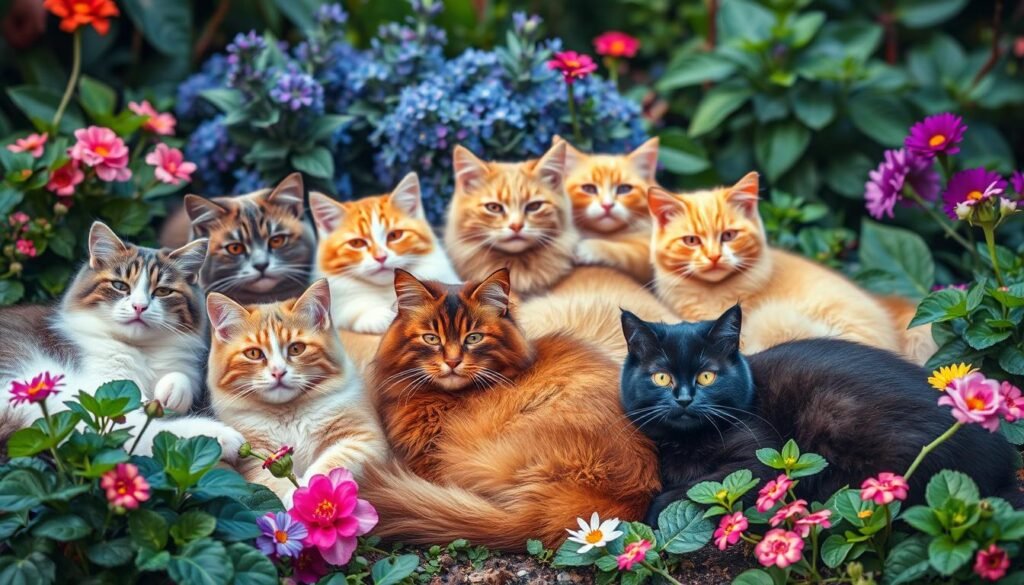
Even though coat color might affect health and longevity, other things matter too. Diet, exercise, and vet care are key for a cat’s health. Taking good care of your cat and regular vet visits are important, no matter the coat color.
Black Cats in Modern Popular Culture
In recent years, black cats have become more visible in popular culture. They appear in films, TV shows, and on social media. These cats have made a big impact on our culture.
Media Representation
Black cats are often seen in horror and supernatural media. They are seen as symbols of bad luck. But, their roles have changed, showing their different personalities and challenging old stereotypes.
For example, Salem from “Sabrina the Teenage Witch” is a mischievous character. And Thackery Binx from “Hocus Pocus” is a loyal friend. These roles show black cats in a new light.
Celebrity Black Cats
Black cats have also become famous among celebrities. Pets like Socks, Bill Clinton’s cat, and Atticus, a social media star, have won many hearts. These cats show the special charm of black cats.
Social Media Influence
Social media has made black cats even more popular. Sites like Instagram and TikTok are full of cat lovers sharing their favorite black cat moments. Viral videos and photos have helped increase their popularity.
Black cats’ growing presence in culture shows their lasting appeal. They are loved on screens and online. These cats have won the hearts of people all over the world.
Adoption Statistics and Shelter Experiences
Black cats often face challenges when it comes to finding homes. Recent adoption statistics show they stay in animal shelters longer than other cats. This is a sad reality.
Shelters and adoption agencies say black cats are often ignored. People might think they’re not as friendly because of old myths. Sadly, this leads to black cats being adopted less than other cats.
- Studies show that black cats are adopted at a rate 50% lower than other coat colors.
- Some shelters report that black cats can take up to 30% longer to be adopted compared to their non-black counterparts.
- Initiatives like “Black Cat Awareness” campaigns aim to promote the adoption of these misunderstood felines and dispel negative stereotypes.
Shelter workers say black cats are just as loving and special as any other cat. With patience and understanding, they can find the homes they deserve.
“Black cats are just as deserving of loving homes as any other cat. We need to look beyond outdated superstitions and give these wonderful animals a chance.”
– Samantha, Adoption Coordinator at City Paws Shelter
Training and Socializing Black Cats
Bringing a new black cat home is exciting but needs care. They need training and socialization to thrive and bond with you.
Early Socialization Tips
Early socialization is key for a well-adjusted black cat. From a young age, expose them to various sights, sounds, and experiences. This makes them confident and secure. Introduce them to new people, pets, and places slowly and positively.
- Start socialization early, ideally within the first few weeks of bringing your black cat home.
- Provide plenty of opportunities for your cat to interact with you and other family members in a calm, nurturing environment.
- Gradually introduce your black cat to new situations, such as trips to the vet or visitors to your home, to help them feel at ease.
Building Trust and Bonds
Building trust and bonds is vital for training and socializing black cats. They can be cautious and may take time to trust you. With patience, consistency, and positive reinforcement, you can make them feel safe and confident.
- Offer your black cat treats and playtime as rewards for good behavior, reinforcing the connection between you and your furry friend.
- Spend quality time with your black cat, engaging in activities they enjoy, such as playing with toys or offering gentle petting sessions.
- Be patient and understanding as your black cat adjusts to their new environment and learns to trust you.
By following these tips and tailoring your approach to your black cat’s unique personality, you can help foster a strong, lasting bond. This ensures your feline companion feels loved, secure, and confident in their new home.
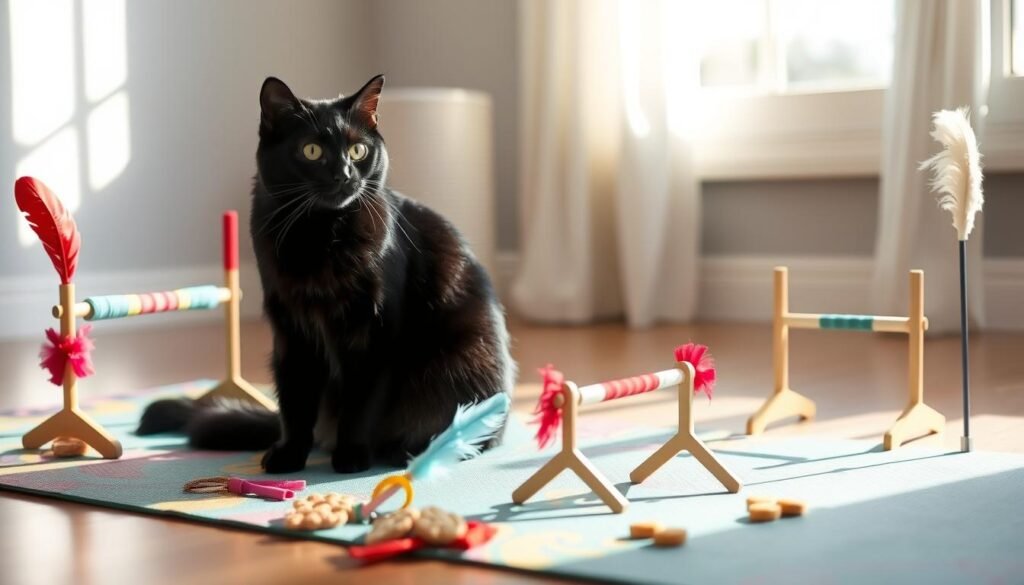
Black Cat Breeds and Their Distinct Characteristics
Black cat breeds offer a wide range of feline friends to explore. From the sleek Bombay to the regal Sphynx, each breed has its own look and personality. These traits make them stand out to cat lovers.
Many black cat breeds have a solid black coat. The Bombay has a shiny coat that looks like patent leather. The Sphynx has a unique bald look with soft skin. Their yellow eyes add to their charm.
Black cat breeds are known for their unique personalities. The Bombay is loving and playful. The Sphynx is smart and curious, forming strong bonds with people.
- Bombay: Sleek, shiny black coat; affectionate and playful
- Sphynx: Distinctive bald appearance; intelligent and curious
- Panther-like Domestic Shorthair: Muscular build; independent and adventurous
- Havana Brown: Chocolate-brown coat with a distinctive head shape; loyal and sociable
Exploring black cat breeds reveals a world of fascinating traits. Whether you prefer the Sphynx‘s regal look or the Bombay‘s playful nature, there’s a black cat breed for everyone.
The Truth About Black Cat Superstitions and Good Fortune
Black cats have long been tied to superstitions about luck. But, the truth behind these beliefs is more complex. Exploring black cat folklore reveals a rich mix of cultural views and modern twists.
Global Lucky Cat Traditions
In many cultures, black cats are seen as good luck symbols. For example, in Japan, the maneki-neko or “lucky cat” is a symbol of prosperity. In the UK, black cats are believed to bring good luck to homes.
- In Ancient Egypt, black cats were sacred animals linked to the goddess Bastet, protector of the home and family.
- In parts of Asia, black cats are thought to bring good fortune and are often kept as pets or given as gifts.
- In some European regions, a black cat crossing your path is seen as a positive omen, signaling a visitor or a prosperous start.
Modern Interpretations of Old Beliefs
Modern views challenge old superstitions about black cats. Experts say the negative views come from historical prejudices, not facts.
“Black cats are no more or less lucky than any other cat. Their color is simply a result of genetic variations, and they possess the same diverse range of personalities and temperaments as cats of any other hue.”
Today, animal welfare groups and cat lovers aim to clear up myths. They push for black cat adoption, highlighting their good fortune and the need to judge a cat by its character, not color.
Conclusion
We’ve looked into the world of black cats, clearing up myths and showing their special traits. We’ve seen how black cats are seen in different cultures and why they look the way they do. This shows the real side of these misunderstood cats.
Black cats are not signs of bad luck. They are loving and loyal friends. Their friendly nature, smarts, and fun ways make them great for families. We’ve found out that a cat’s fur color doesn’t affect their health or how long they live.
Knowing the truth about black cat personalities helps us support their adoption. These black cat personalities are more than myths and loving companions deserve our appreciation. It’s time to welcome black cats into our homes and hearts.
FAQ
What are some common myths and misconceptions about black cats?
Many people believe black cats bring bad luck or are linked to witchcraft. These myths can make it tough for black cats to find homes. They are often seen as aggressive, which isn’t true.
Are black cats more resistant to diseases compared to cats of other colors?
Research suggests black cats might fight off some diseases better. Their fur’s melanin could protect them from skin cancer and other issues. This makes them seem more resilient.
Do black cats have unique personality traits?
Yes, black cats are known for being loving, social, and playful. They bond strongly with their owners and are smart. Like any cat, they have their own quirks and personalities.
Is it true that black cats are more difficult to adopt from shelters?
Unfortunately, yes. Black cats wait longer to be adopted than cats of other colors. Superstitions and myths make some people hesitant to adopt them.
Can black cats bring good luck?
In many cultures, black cats are seen as lucky. In the UK and Japan, they’re symbols of wealth and are loved as pets. They’re not just good luck charms, but also cherished companions.
Do black cats have any unique health or genetic advantages?
Research shows black cats might have some health perks. Their fur’s melanin could protect them from skin issues and sunburn. But, their color doesn’t mean they’re healthier or live longer than other cats.
How can I properly socialize and train a black cat?
Socializing and training a black cat is like any other cat. Start early, use positive methods, and build trust. A safe, enriching home helps them grow and show their true selves.

